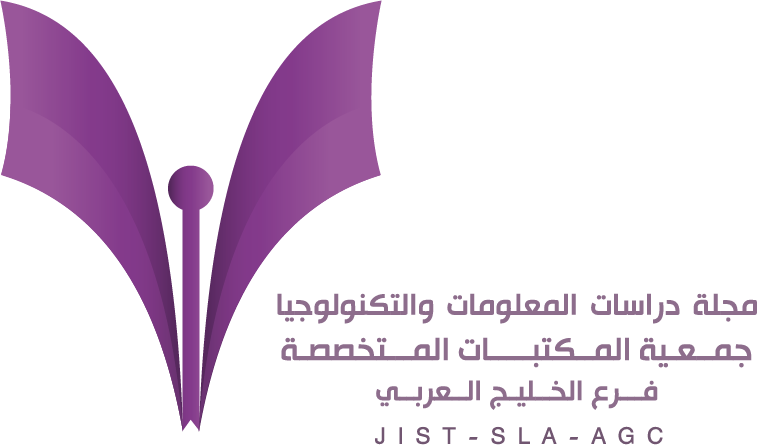-
oa تحسين سرعة استجابة المواقع الإلكترونية لمحركات البحث: موقع جامعة مصراته (ليبيا) نموذجا
- Source: Journal of Information Studies & Technology (JIS&T), Volume 2021, Issue 2, سبتمبر ٢٠٢١, 9
-
- ٣١ مايو ٢٠٢٠
- ١٠ أغسطس ٢٠٢٠
- ٠٧ سبتمبر ٢٠٢١
ملخص
ملخص
المقدمة: نظراً لكون المواقع الالكترونية هي الواجهة الرسمية والخدمية للمؤسسات، فإن الحصول على تصنيف عال في نتائج محركات البحث هو هدف أساسي لأي موقع ناجح لأنه سيزيد نسبة الزيارات لهذه المواقع وبالتالي الترويج لما يقدمه من منتجات وخدمات. إن الهدف من هذه الورقة هو استكشاف العوامل المؤثرة على سرعة استجابة المواقع الإلكترونية وتحسين أداء الموقع عبر تنفيذ عدد من الخطوات التقنية لتحسين سرعة استجابة المواقع الإلكترونية لمحركات البحث بنجاح بهدف زيادة فرص ظهور الموقع في نتائج البحث الأولى مقارنة ببعض المواقع المشابهة، لقد كانت منهجية العمل ترتكز على تحليل محتويات المواقع الإلكترونية باستخدام أدوات التحليل المختلفة، وقد تم استخدم تصنيف منظمة (Webometrics) لتحديد تصنيف المواقع، ومقياس (Alexa) لتحليل عوامل تصنيف هذه المواقع، واستخدم أداة (PageSpeed Insights) لتحديد سرعة استجابة المواقع وطرق تحسينها. لقد كان هدف الدراسة هو تحديد العوامل المؤثرة على سرعة استجابة المواقع الإلكترونية وذلك عن طريق تحليل موقع جامعة مصراتة لمدة أربعة أشهر، النتيجه: وبإجراء مقارنة لسرعة استجابة موقع الجامعة قبل وبعد إجراء التحسينات المقترحة كانت النتيجة هي ارتفاع سرعة استجابة موقع جامعة مصراته لمحركات البحث وظهوره للمستخدم من 47% إلى 98% مما يؤكد صحة نتائج الدراسة في تحديد العوامل المؤثرة على استجابة المواقع الإلكترونية. وقد خلصت الدراسة إلى أهم المشاكل التي تؤثر بشكل كبير على تجربة المستخدم وتقلل عدد زوار موقع جامعة مصراتة وبالتالي حصوله على تصنيف أقل، ثم قدمت الورقة مجموعة من التوصيات لمساعدة فريق إدارة موقع الجامعة على تحسين سرعة استجابة الموقع وبالتالي تصنيفه،
Background: Given that websites have become the institutions’ official and service interface, obtaining a high-ranking position in search engine results is becoming a primary goal for successful websites. This will increase the number of visits to these sites and thus promote their products and services. Aim: This paper aimed at exploring the factors affecting the speed of websites response to search engines and the required technical tools for improving site performance to enhance the chances of the site ranking at the top of search results compared to competing websites. Moreover, the study examined how implementing those factors would improve the ranking performance of Misurata University website. Methodology: Some websites’ content was analysed using various analysis tools to determine the factors affecting the speed of response of websites: 1) Webometrics classification to determine the classification of sites, 2) the Alexa scale to analyze the classification factors of these sites, 3) the (PageSpeed Insights) tool to determine the speed of response of sites and ways to improve them. In addition, we analyzied the Misurata University website for four months. Results: The response speed of Misurata university’s website was compared before and after implementing the proposed improvements and it showed higher response speed (from 47% to 98%) to search engines and ranking at higher levels to users. Conclusion: The study identified the most important problems that greatly affect users’ experiences and reduce the number of visitors to the Misurata University website, and thus obtaining a lower rating. Recommendations: The paper presented a set of recommendations to help the management team of Misurata university website to improve the speed of the website’s response and thus its ranking in the search-engines results. This confirms the validity of the the study results in determining the factors affecting the response of websites.


